HOME > Basketball
Although Iverson is not as good as Kobe among the four major points guards, he has the best performance in the playoffs in his first playoffs
6:41pm, 3 July 2025【Basketball】
On July 3, in the history of the NBA, Allen Iverson in 2001 wrote the most shocking debut in the playoffs with a lone hero. While Kobe Bryant, Vince Carter and Tracy McGrady were still acclimating to the intensity of the playoffs, the Philadelphia answer, who was only 1.83 meters tall, subverted the perception of the basketball world with a rascal performance of 32.9 points per game. His first season of playoff performance not only crushed the four major points guards of the same class, but also set a legendary record of third-average score in NBA history, second only to legendary superstars Jabbar and Rick Barry. In the first round of the 2001 playoffs, Iverson faced the Pacers led by Reggie Miller, and G3 scored 40 points in a single game to announce the arrival of the king. In the second round against Vince Carter's Raptors, he staged an epic double 50+ performance: 54 points in the second game of the series and 52 points in the fifth game, becoming the only player in NBA history to score 50+ multiple times in a single-round series. In the seventh life-and-death battle against the Bucks in the Eastern Conference Finals, he scored 44 points with 11 injuries, and his figure hit the key balls in the last moment became a classic. When the Finals G1 was at the Staples Center in Los Angeles, the moment he crossed Tyron Lou not only ended the Lakers' 11 consecutive wins in the playoffs, but also made the world remember this little giant. In contrast, Kobe's first two playoff trips averaged only 8.2 points and 8.7 points per game, and it was not until his fourth season that he broke through the 20-point mark. Although Carter had a 25.7-point performance in the first season of the playoffs, he was swept out in the second round; McGrady never broke through the first round during the Raptors. The greatness of Iverson is that he perfectly combines personal heroism with team victory - when the season he won three honors: regular season MVP, All-Star MVP and scoring champion, and the feat of leading the team to the finals by a single core is still the pinnacle myth of a short player. The gap revealed by the data is more intuitive: Iverson's total score in the first season of the playoffs reached 723 points, 89 points more than Kobe's total score in the first four years of the playoffs; his average of 32.9 points is 20% higher than Carter's best playoff season (27.3 points), and 1.5 times the average score in the playoffs during the McGrady Magic. In terms of dominance in key battles, Iverson contributed 7 games to 40+ in the first season, while Kobe didn't reach 40+ in the playoffs for the first time until 2001. This innate killer instinct made him dare to score 7 points in the last 47 seconds when facing the Magic in the first playoffs in 1999.
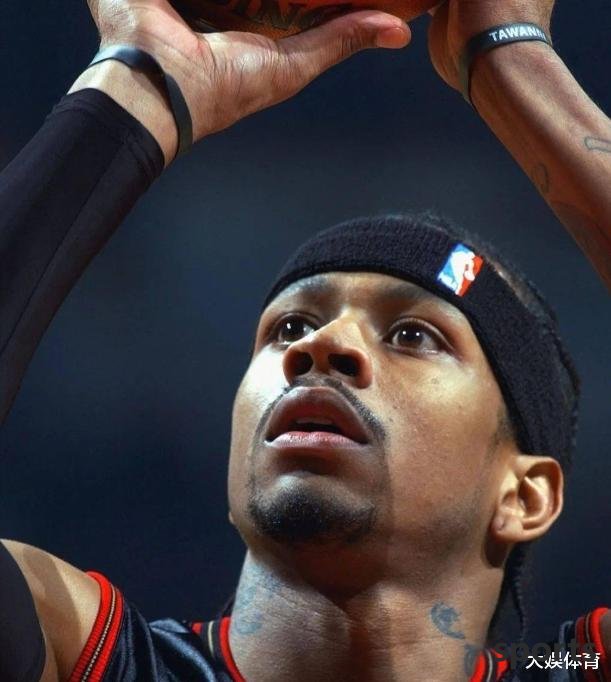
Basketball philosopher Pat Riley once commented: "Iverson redefined the intensity standard of the playoffs. " His first season of the playoffs' victory contribution (WS) reached 4.9, more than three times that of Kobe in the same period. In the playoff stage where the defensive intensity has increased by 30%, his real shooting percentage has increased by 2.3 percentage points compared to the regular season. This characteristic of being strong when facing strong is a unique existence among the four major scorebacks. When he defeated the Lakers with 48 points in the first game of the 2001 Finals, even O'Neal admitted: "That night we witnessed the greatest solo performance of this era. "
Looking back at the starting point of the four major points guards, Iverson interpreted the definition of a superstar in the purest way. He is not like Kobe needs O'Neal's protection, not like Carter relies on Kidd's dispatch, nor is he like McGrady waiting for Yao Ming's growth. From the first moment he entered the playoffs, he has been carrying the team with an average of 43.7 minutes of playing time and proved that he is Philadelphia's only tactical core with a terrifying usage rate of 41.8%. This responsibility that takes the rise and fall of the team into one, made his first-season playoff performance not only become a benchmark for the four major point guards, but also set the gold standard for rookies in NBA history.
Tỷ Số Trực Tuyến 7MRelated Posts
- Yang Hansen was recalled by the Trail Blazers! The team reporter said that even if he cannot become Jokic, he is by no means an ordinary role player
- A 16-point reversal and a 3-game winning streak! With Banqueiro absent, Xiaowa scored 25+6+5 and scored key three-pointers in a row.
- Tyron Lu talks about superstar breakup: If Irving has not left the team, I think James will stay with the Cavaliers
- American News: The Lakers are expected to maintain their current lineup and enter training camp. They look forward to Vincent & Kleber s performance
- Stockton: NBA s current style is weak; they are all jumpers, players love load management; their salary is still high
- The Rockets have signed 4 players in a row, the Clippers finally take action, and the Warriors target appears
- Morant bid farewell to Bain: 5 years of brotherhood breaking, muscle shooter shoots magic to change the Eastern Conference pattern
- More than the third brother! Homgren becomes the X factor?
- Funny, Brunson was named the 2025 NBA Playoffs Best Offensive Player and Worst Defensive Player
- Why can t the Los Angeles Clippers win the NBA championship?
Hot Posts
- Yang Hansen was recalled by the Trail Blazers! The team reporter said that even if he cannot become Jokic, he is by no means an ordinary role player
- A 16-point reversal and a 3-game winning streak! With Banqueiro absent, Xiaowa scored 25+6+5 and scored key three-pointers in a row.
- Tyron Lu talks about superstar breakup: If Irving has not left the team, I think James will stay with the Cavaliers
- American News: The Lakers are expected to maintain their current lineup and enter training camp. They look forward to Vincent & Kleber s performance
Recommend

At the age of 37, Curry scored 49 points, tying with Jordan, becoming the player with the most 40+ games over the age of 30.
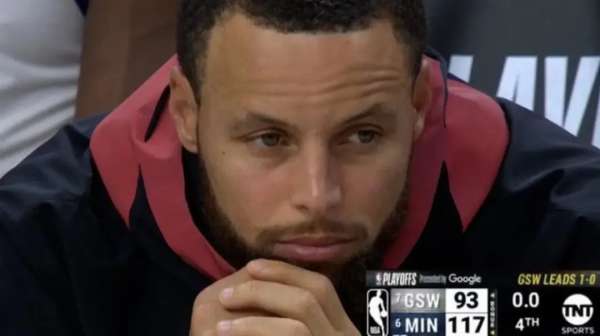
Wolfy G2: What is the significance of a seemingly meaningless game
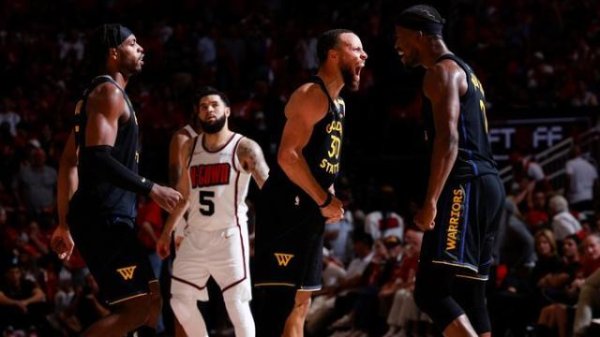
Good night Houston! The post-80s sacred flame is not extinguished, Curry refuses to die in the tiebreak
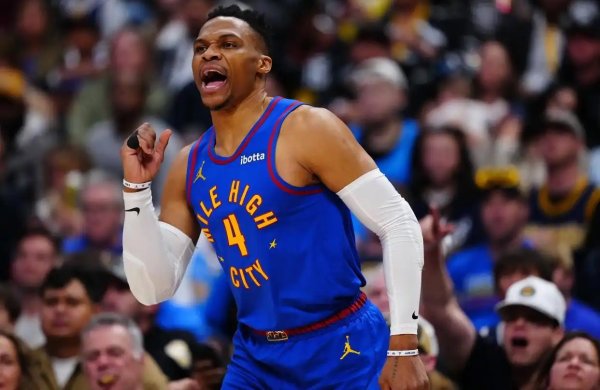
Megatron led the team back to Goose City in a tiebreak, and vowed to capture Alexander alive!

Yang Hansen can gain a foothold in the NBA if he plays well in the Xialian? Meiji made another analysis and expressed concerns

How much more are these NBA stars worth in trade?
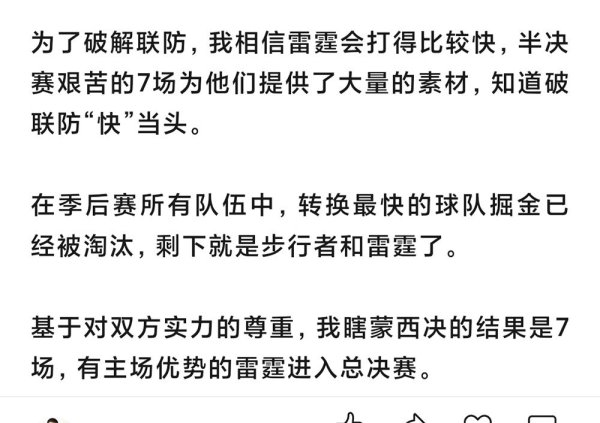
Thunder V Timberwolves, who can advance? Su Qun s answer is the same as Perkins

Beidan Uncle Guan-Thursday 307NBA Bucks VS Warriors